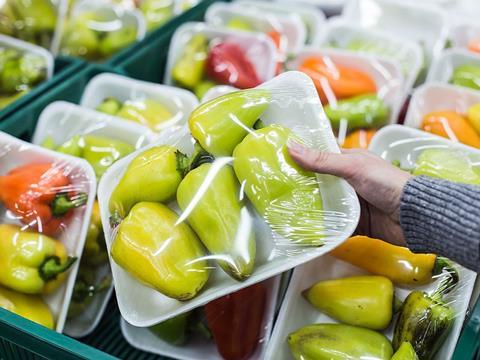
A comment piece by Noel Morrin, EVP and head of sustainability at Stora Enso.
The fact that fossil oil-based plastics are harmful to the environment is nowadays regarded as common knowledge, strongly supported by research and science. The problem becomes even more evident through images in the media of garbage-strewn beaches and islands of plastic waste floating around in the oceans. Like climate change, the environmental impact of plastic waste on our planet is a condition that is no longer open to doubt. As an example, it takes more than 400 years for an ordinary water bottle made from PET to decompose biologically. We don’t have that much time.
Achieving significant — and for our planet, necessary — progress in mitigating the greenhouse effect requires measures that yield considerable and measurable results. The focus in the discussion about fossil oil-based plastic is often on the effects of littering. Of course, a well-functional infrastructure for collection and recycling is fundamental for reducing this issue. But the key to success lies in replacing fossil oil-based products with renewable and rapidly biodegradable ones.
The primary component of plastic — fossil oil — is in addition to its environmental side-effects not a renewable resource in the sense that it cannot be replenished. At some point it will run out. To overcome this, we need a renewable resource that can recover sustainably and be reproduced. Trees are one of the few raw materials that, if correctly and sustainably managed, can grow faster than they are consumed, while their products can be recycled and biologically decomposed. Such forest-based products include cardboard packaging for food and liquids.

Grocery retail is an enormous market in which consumers around the world daily purchase products that through their packaging are harmful to the environment. Now, a large portion of the packaging in the retail grocery market is made of cardboard, a completely renewable raw material that has its origins in trees. But plastic packaging still dominates the shelves in grocery stores. An investigation by the Guardian estimated that UK supermarkets produce more than 800,000 tonnes of plastic packaging every year – enough to cover the whole of Greater London to a depth of 2.5cm.
Naturally, not everything can be packed in fibre-based material — not yet, in any case — but let us create the right conditions for the consumer to avoid plastic in favour of biologically-based packaging. Ideally without compromising on quality, functionality and price.
There are interesting models emerging in Europe to achieve this. Earlier this year, The Netherlands was the first country to introduce a plastic-free aisle in shops. One of the largest national grocery chains, Ekoplaza, created a separate food section where the packaging is 100 per cent plastic-free. The aim is to allow customers to make an environmentally-friendly purchasing choice. In the UK, grocery chain Iceland Foods has announced its commitment to completely eliminate plastics for all its own-brand products. The customers are onboard and Iceland’s own polls showed that a vast majority endorsed their plastic-free move. Many European grocery chains now have their eye on similar models with the aim to reduce or even eliminate plastic packaging materials.
Moreover, a proposal has recently been presented Brussels to limit the use of single-use articles in the EU made from certain types of plastics. This represents good progress and will make a difference, but if we are to make the next great leap forward, it will require measures regarding the packaging we buy daily in grocery stores, of which a significant portion is still made of fossil oil-based materials.
Recycling plastics is often referred to as a sustainable solution. But even if the plastic bottle or package we buy at the corner store is recyclable, it must ultimately be incinerated, thereby contributing to fossil carbon emissions. If we are to seriously curb the greenhouse effect, we must also begin replacing fossil oil-based plastic with renewable materials. Bio-based wood-fibre packaging is central to the success in carrying this out, giving food retailers a unique opportunity to lead the way in the shift away from plastics.
Well-drafted regulations can and should play a decisive role in moving away from plastic packaging. For example, introducing an incentive model to encourage the food industry — and, as a result, consumers — to prioritise bio-based packaging should be evaluated both on national and EU levels. We must start from everyday life in order to achieve rapid results and change the very foundations of our behaviour.
And there is no lack of specific, successful examples to gain inspiration from. The 5p plastic bag charge, introduced in October 2015, has reduced plastic bag use in England by over 80 per cent, translating to a saving of more than 9 billion plastic bags so far. A fantastic development over a relatively short period of time and proof that the consumer adapt behaviour when the conditions of daily life change.
By simply allowing consumers to make smart choices of sustainable packaging materials, enormous potential is freed up to reduce emissions of greenhouse gases. If we begin now, it will likely be the obvious choice for future generations to reject plastic packaging in grocery stores. Or even better, there won’t be any plastic packaging at all.














